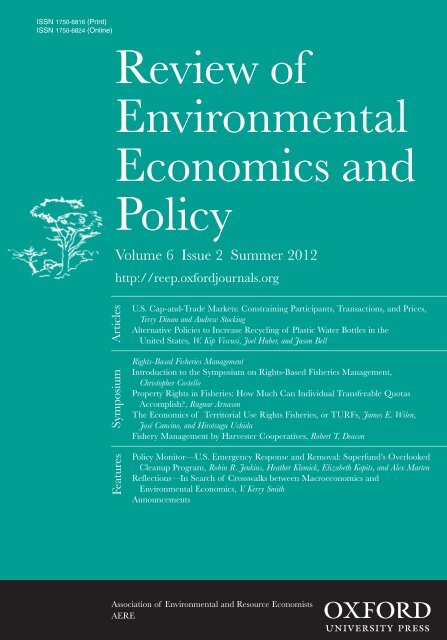对国际海运燃料征收碳税
IF 6.6
3区 经济学
Q1 ECONOMICS
引用次数: 5
摘要
国际海事组织承诺到本世纪中叶将航运业的碳排放量在2008年的水平上至少减少50%。下一步是设计一个实施这一承诺的战略。对国际海运燃料征收碳税是这一战略的关键组成部分,因为它为短期减排提供了全面的激励,为部署零排放船舶(zev)提供了最终所需的强有力的价格信号,并为zev的研发和基础设施投资提供了短期资金。本文讨论了国际海事碳税的基本原理,关键的设计和实施问题,以及这种征税的环境影响。本文章由计算机程序翻译,如有差异,请以英文原文为准。
A Carbon Levy for International Maritime Fuels
The International Maritime Organization has pledged to reduce carbon emissions from the shipping industry by at least 50 percent below 2008 levels by midcentury. The next step is to design a strategy for implementing this commitment. A carbon levy for international maritime fuel is a critical component of this strategy because it provides across-the-board incentives for near-term mitigation, the robust price signal that is ultimately needed for deploying zero-emission vessels (ZEVs), and near-term funding for R & D and infrastructure investment for ZEVs. This article discusses the rationale for an international maritime carbon levy, key design and implementation issues, and the environmental impacts of such a levy.
求助全文
通过发布文献求助,成功后即可免费获取论文全文。
去求助
来源期刊
CiteScore
10.80
自引率
0.00%
发文量
25
期刊介绍:
The Review of Environmental Economics and Policy fills the gap between traditional academic journals and the general interest press by providing a widely accessible yet scholarly source for the latest thinking on environmental economics and related policy. The Review publishes symposia, articles, and regular features that contribute to one or more of the following goals: •to identify and synthesize lessons learned from recent and ongoing environmental economics research; •to provide economic analysis of environmental policy issues; •to promote the sharing of ideas and perspectives among the various sub-fields of environmental economics;

 求助内容:
求助内容: 应助结果提醒方式:
应助结果提醒方式:


